Ever wonder where the foundational ideas of democracy truly took root? Its origins trace back to ancient Greece, a civilization often romanticized as the cradle of Western thought. Yet, fully grasping their version of democracy, particularly in Athens, demands moving beyond idealized notions to delve into its intricate workings, inherent exclusions, and lasting legacy. This exploration aims to provide a clear, comprehensive picture of Athenian democracy, examining its revolutionary features, key institutions, and the complex interplay between citizens, councils, and assemblies. More than just a historical account, we will critically compare their approach to our modern democracies, analyzing what they achieved, where they fell short, and how these ancient political experiments continue to echo in contemporary challenges and inspire the ongoing evolution of self-governance. Athenians even used a process like ostracism.
The Genesis of a Revolutionary Idea: Democracy’s Athenian Birth
The concept of “democracy,” derived from the Greek words demos (people) and kratos (rule), signifies rule by the people. While other Greek city-states like Argos and Syracuse experimented with democratic forms, Athens, around the 5th century BCE, developed the most sophisticated and influential system. This political innovation emerged from a series of reforms designed to mitigate social tensions and curb aristocratic power.
Early reforms, such as those introduced by Draco around 621 BCE, established a codified legal system, making laws publicly accessible, though notoriously harsh. Later, Solon‘s reforms in 594 BCE were pivotal, abolishing debt slavery and expanding political participation by creating the Ecclesia (assembly) open to a broader range of citizens. However, Cleisthenes, around 508/507 BCE, is widely hailed as the “Father of Athenian Democracy.” He restructured Athenian society into ten tribes based on local units (demes) rather than traditional aristocratic lineage, profoundly disrupting old power blocks. This monumental shift fostered a new sense of collective Athenian identity and empowered citizens previously marginalized.
Core Institutions of Athenian Direct Democracy
Athenian democracy was characterized by its direct nature, meaning eligible citizens participated directly in decision-making rather than electing representatives. This system relied on three primary institutions:
The Ekklesia (Assembly)
The Ekklesia was the sovereign governing body of Athens, open to all male citizens aged 18 or older. Meetings were held frequently, approximately 40 times a year, on the Pnyx hill, a dedicated space accommodating around 6,000 citizens. Here, citizens debated and voted directly on crucial matters of state, including laws, declarations of war, foreign policy, and financial magistracies. Decisions were made by simple majority vote, often by a show of hands. This embodies the purest form of direct democracy, where every eligible citizen could voice their opinion (parrhēsia, or freedom of speech) and directly influence public policy, a privilege deeply valued by Athenians. As the historian Thucydides observed, “We alone consider a citizen who does not partake in politics not only one who minds his own business but useless.”
The Boule (Council of 500)
Complementing the Ekklesia was the Boule, or Council of 500. This body comprised 500 men, 50 from each of the ten Athenian tribes, chosen by lot to serve for one year. Unlike the Ekklesia, the Boule met daily, serving as the executive committee of the assembly. Its primary function was to prepare the agenda and proposals for the Ekklesia, supervise government workers, manage public finances, and oversee the navy and army. By controlling what matters came before the assembly, the Boule significantly dictated the flow of democratic governance. Positions on the Boule were chosen by lot rather than election, a deliberate choice intended to democratize access, theoretically preventing the wealthy or influential from monopolizing power. This random selection, facilitated by a special machine called a kleroterion, was a unique mechanism for ensuring broad participation and minimizing corruption, though some historians note that wealthy families still often found ways to influence outcomes.
The Dikasteria (Popular Courts)
The third crucial institution was the Dikasteria, or popular courts. Each day, more than 500 jurors, chosen by lot from male citizens over 30, served on these courts. Aristotle considered the Dikasteria a cornerstone of Athenian democracy due to the jurors’ almost unlimited power. In the absence of professional judges or police, it was the citizens themselves who brought cases, argued both prosecution and defense, and delivered verdicts and sentences by majority rule. Jurors were paid a small wage, making participation accessible to a wider economic spectrum. This system ensured that justice was truly a collective responsibility, though it also meant that trials could sometimes be swayed by eloquent rhetoric or used by citizens to embarrass their adversaries, as there were few formal rules on admissible evidence or speech.
Inclusivity and Its Limitations: The Athenian Paradox
While revolutionary for its time, Athenian democracy was far from universally inclusive by modern standards. Citizenship was highly exclusive, limited solely to free-born adult males whose parents were also Athenian citizens. This meant that women, enslaved people (who comprised an estimated 150,000 of a total population of around 300,000), and metoikoi (resident foreigners, roughly 10,000) were entirely excluded from political participation. In the mid-4th century BCE, only about 40,000 men out of the general populace were eligible to participate in the demos.
This stark limitation reveals a paradox: a system celebrated for its direct citizen involvement simultaneously excluded the vast majority of its inhabitants. The “equality before the law” described by Herodotus and celebrated by Pericles in his famous Funeral Oration applied only to a select segment of society. Pericles famously declared, “Athens’ constitution is called a democracy because it respects the interests not of a minority but of the whole people. When it is a question of settling private disputes, everyone is equal before the law; when it is a question of putting one person before another in positions of public responsibility, what counts is not membership of a particular class, but the actual ability which the man possesses.” Yet, this “whole people” was a narrow definition.
Furthermore, despite the lottery system designed to prevent elite dominance, critics such as Thucydides and the playwright Aristophanes observed that proceedings could still be swayed by wealthy or particularly skilled orators (demagogues). The inherent risks of direct democracy—where emotions could override reasoned judgment—were famously highlighted by instances like the controversial execution of six generals after a naval victory in 406 BCE, or the death sentence given to the philosopher Socrates in 399 BCE, often cited as examples of the demos making ill-informed or impassioned decisions.
The Decline of a Pioneering Political Experiment
Did Athenian democracy inherently contain the seeds of its own downfall? Economic disparities certainly played a role, with wealth concentration fueling social unrest and creating fertile ground for factionalism. Institutional frailties, including reports of bribery and corruption, occasionally eroded public confidence in the democratic process. When citizens lose faith in their institutions, it often presages systemic decline.
A catastrophic turning point was the protracted Peloponnesian War (431-404 BCE), a devastating conflict with rival Sparta that severely depleted Athenian resources and strained its democratic framework to the breaking point. The war underscored deep societal divisions and fostered an environment of suspicion and instability, leading to a brief oligarchic coup in 411 BCE, though democracy was later restored in a modified form. Ultimately, the ascendancy of Macedonia under Philip II and Alexander the Great in the mid-4th century BCE marked the definitive end of Athenian self-rule. The once-proud Greek city-states were subjugated by military might, and monarchy replaced democratic governance, extinguishing the dream of direct citizen participation that had flourished for generations.
Ancient vs. Modern: Evolving Democratic Ideals
The distinctions between ancient Greek democracy and its modern counterparts are profound, fundamentally shaped by scale, technology, and evolving values.
Evolving Inclusivity and Participation
Ancient Athenian democracy, despite its direct participation, was inherently exclusive, limiting voting rights to eligible male citizens. Modern democracies strive for universal suffrage, theoretically enfranchising all adult citizens regardless of gender, race, religion, or socioeconomic status. This expansion of the political franchise marks a significant evolution towards broader civic engagement and represents a continuing pursuit of true equality.
The shift from direct citizen participation to representative governance is another key difference. While Athens managed its affairs through direct assembly votes, the vast populations and complex administrative needs of contemporary nations necessitate elected representatives. However, this raises persistent questions: Does the representative model truly capture the “will of the people,” or does it create a disconnect between electorates and their leaders? Debates continue on how to foster genuine citizen participation in large-scale representative systems, with some modern approaches exploring citizen assemblies for specific policy issues, drawing inspiration from the ancient model’s focus on direct input.
Today, technology profoundly impacts democratic engagement, offering both unprecedented access to information and new avenues for political discourse, as seen during the COVID-19 pandemic’s acceleration of virtual processes. Yet, it also amplifies misinformation, facilitates targeted manipulation, and raises critical concerns about cybersecurity and digital echo chambers that can polarize societies.
Philosophical Underpinnings and Ethical Imperatives
The philosophical discourse around democracy also evolved significantly. Enlightenment thinkers like Hobbes, Locke, and Rousseau offered foundational concepts for modern democratic thought, emphasizing social contracts, individual rights, and the “general will,” laying groundwork for constitutional law and human rights. However, ancient Greek philosophers like Plato, deeply skeptical of direct democracy, warned against the dangers of mob rule and demagoguery, favoring rule by enlightened philosopher-kings. Aristotle, while more pragmatic, explored various forms of government, advocating for a mixed constitution that balanced democratic elements with aristocratic and monarchical principles to ensure stability and the common good.
More recently, philosophical contributions from outside the Western canon, such as Mahatma Gandhi’s concept of “Swaraj” (moral self-governance) from Indian philosophy, underscore the importance of duties alongside rights. Gandhi advocated for grassroots empowerment through village-level democratic institutions (Panchayats) and emphasized consensus-building over mere majority rule. As Gandhi articulated, true democracy requires individuals to achieve self-control and moral development; without such ethical foundations, democratic institutions risk serving the powerful at the expense of the weak. This perspective continues to highlight the critical need for ethical underpinnings and civic virtue in contemporary political systems, reminding us that the strength of democracy lies not just in its structures, but in the moral character of its citizens.
Enduring Insights for Contemporary Governance
The study of ancient Greek democracy offers invaluable, if nuanced, lessons for navigating the complexities of modern governance. While we cannot simply replicate their system, we can extract critical insights:
- Balancing Participation and Representation: The Athenian model highlights the power of direct involvement. Modern societies can explore innovative mechanisms like citizen juries, participatory budgeting, or enhanced digital platforms to allow diverse voices to contribute more directly to policy development, bridging the gap between representatives and the represented without sacrificing efficiency.
- Robust Checks and Balances: The Athenian system, with its randomized selection for many offices and limited terms, aimed to prevent power consolidation. Contemporary democracies must continuously review and strengthen their oversight mechanisms, promoting transparency, accountability, and ethical governance to guard against corruption and abuse of power.
- Cultivating Informed Discourse: The Athenian emphasis on parrhēsia underscores the importance of public debate. However, the dangers of demagoguery and uninformed decisions, evident even then, are magnified in today’s information age. Upholding freedom of speech must be balanced with robust defenses against misinformation and manipulation. Fostering media literacy, critical thinking, and promoting respectful deliberative spaces are vital for empowering citizens to discern credible information, facilitating constructive dialogue, and creating a more informed and resilient public sphere.
- The Pursuit of True Inclusivity: The Athenian exclusion of women, slaves, and foreigners serves as a stark reminder of historical limitations. Modern democracies must remain vigilant against any form of systemic exclusion, continuously working to ensure that all citizens have equitable access to political participation and representation, reflecting the true diversity of their populations.
Ultimately, lessons from Athenian democracy remind us that democratic freedoms are not static; they are dynamic achievements requiring constant vigilance and defense against both internal vulnerabilities—like economic inequality, corruption, and polarization—and external threats. Strengthening civic education, promoting critical thinking, and fostering a shared commitment to the common good are essential for maintaining a healthy, resilient, and truly representative democracy that learns from its ancient precursors while striving for a more perfect union of its people.
- Unearth ancient rome achievements: Engineering feats & legal legacies, examined - August 13, 2025
- Unlock ancient rome army ranks: Power, impact & legion command - August 13, 2025
- Conquer Your Exam: Ancient Greece Quiz Ace It Now! - August 13, 2025
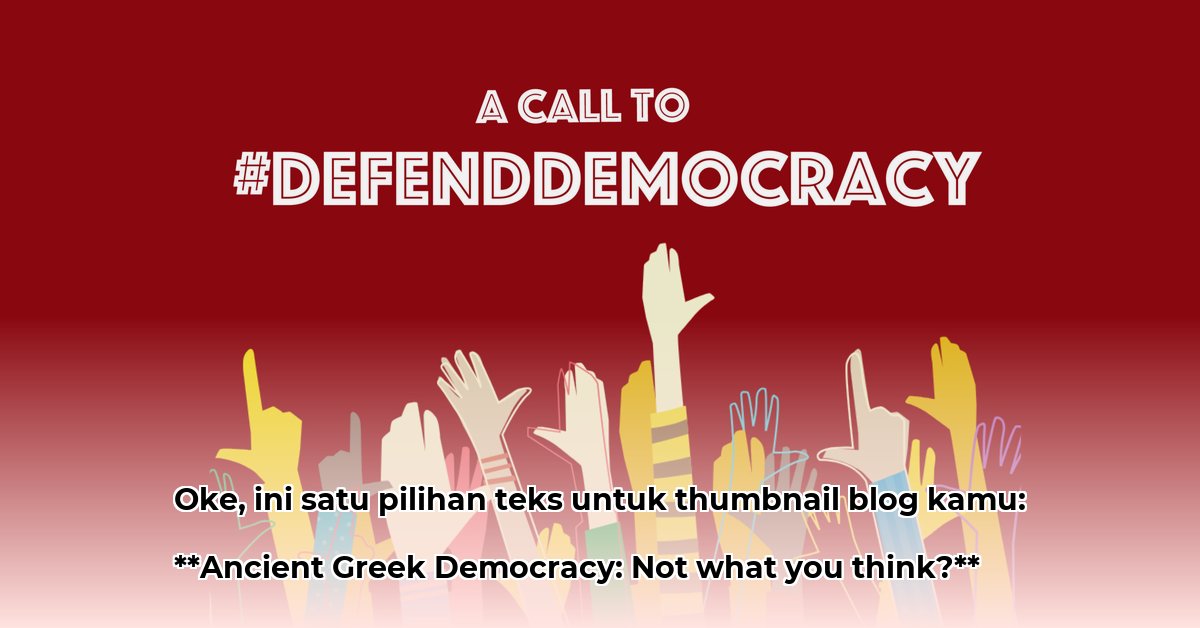







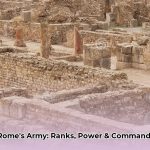
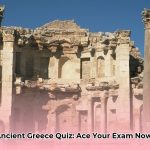


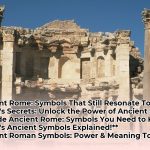
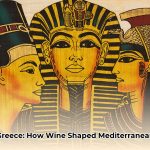
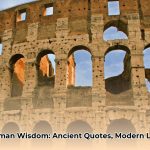


1 thought on “Unveiling Ancient Greek Democracy: Truths, Myths & Its Modern Impact”
Comments are closed.